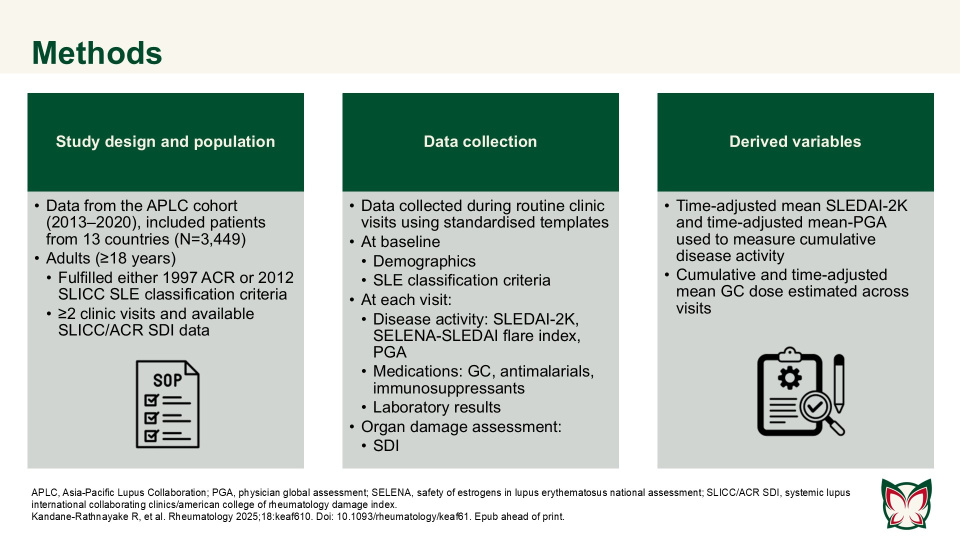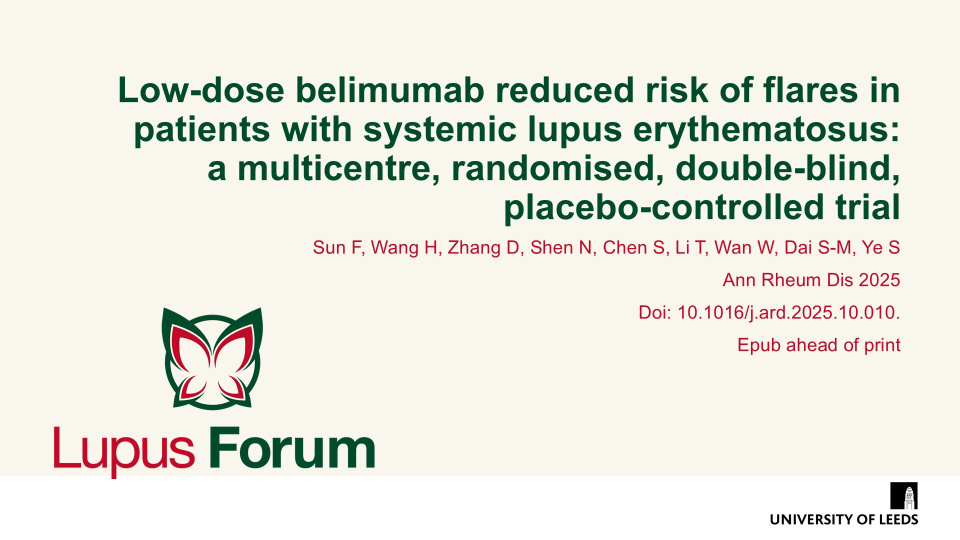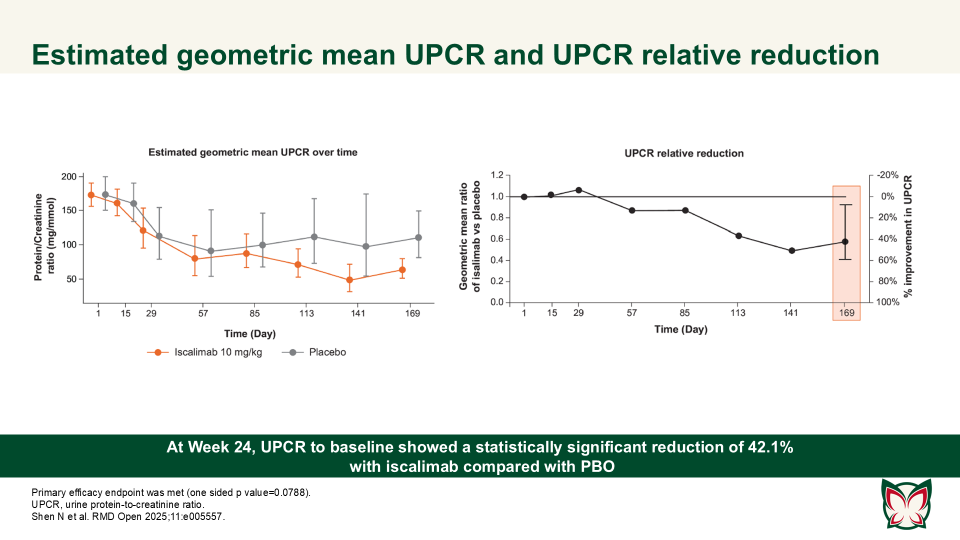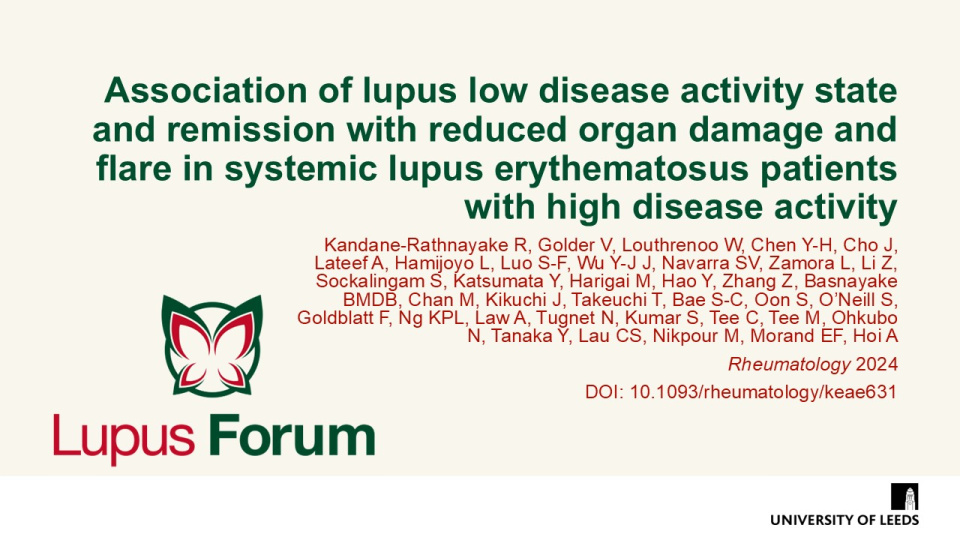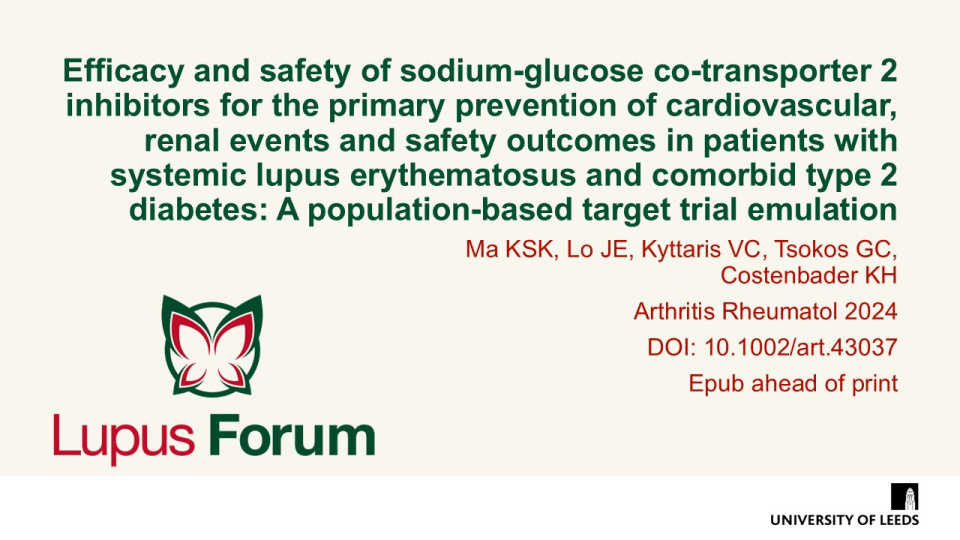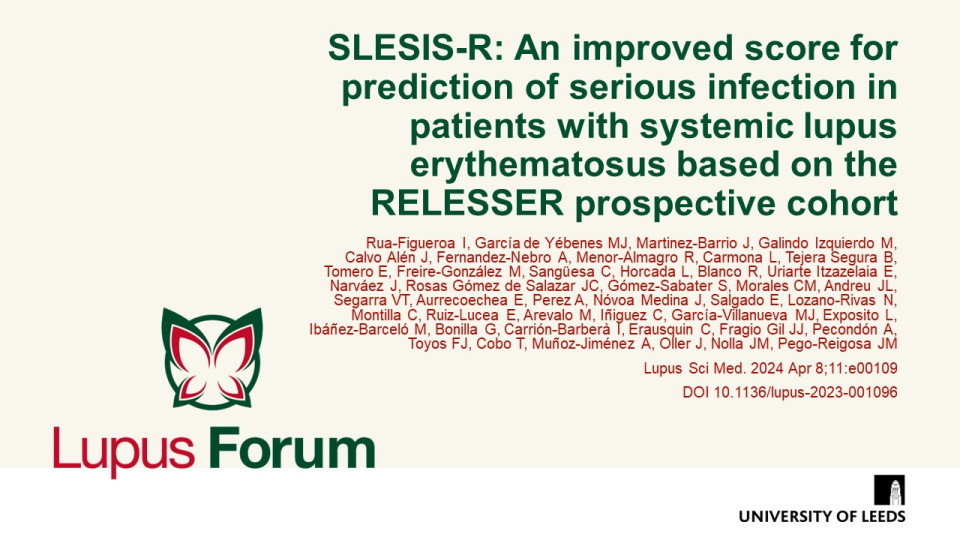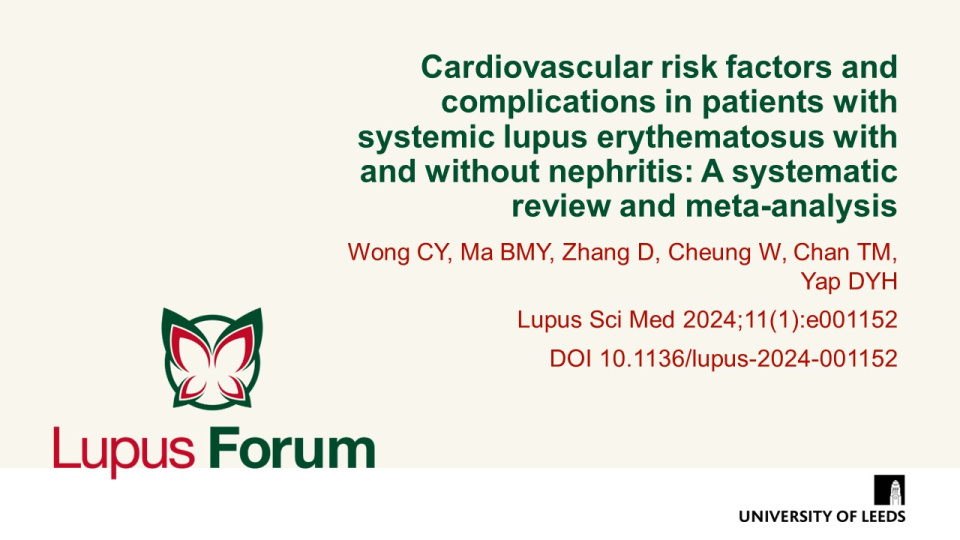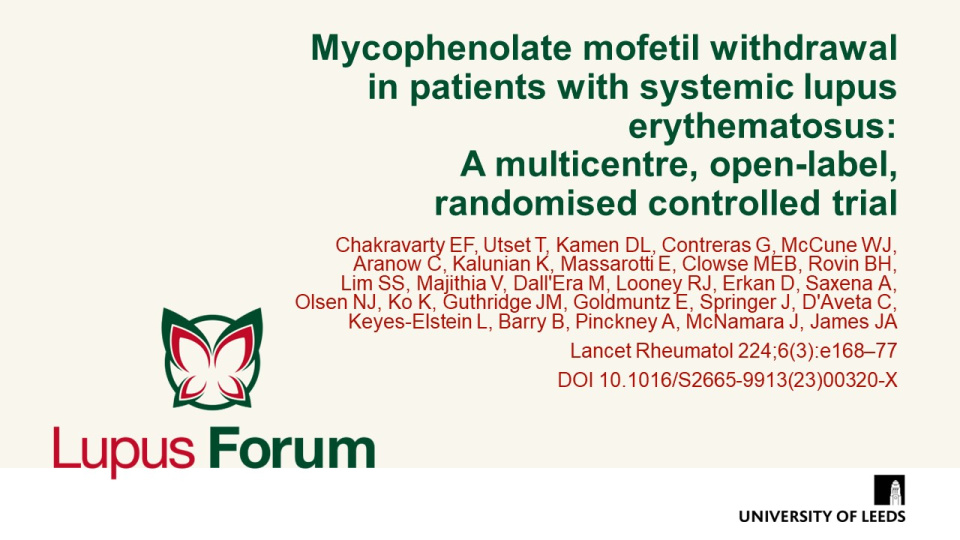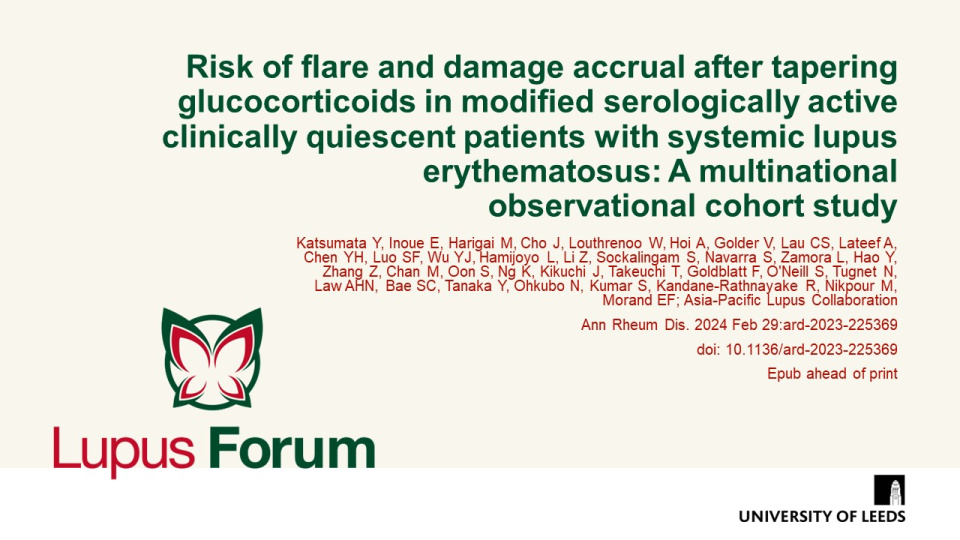Publications
Find coverage of the latest original articles on Lupus, focusing on those with data on therapeutic interventions and those that have clinical impact.
Predictors of damage accrual by organ domain in systemic lupus erythematosus
Rheumatology 2025;18:keaf610 Doi: 10.1093/rheumatology/keaf610 Epub ahead of print
Kandane-Rathnayake et al. reported that risk factors for individual organ system damage were highly varied in patients with SLE, and not all factors associated with domain-specific damage were captured by summed systemic lupus international collaborating clinics/american college of rheumatology damage index (SLICC/ACR SDI) for overall organ damage.
Low-dose belimumab reduced risk of flares in patients with systemic lupus erythematosus: A multicentre, randomised, double-blind, placebo-controlled trial
Ann Rheum Dis 2025 Doi: 10.1016/j.ard.2025.10.010. Epub ahead of print
Sun et al. provides the first RCT evidence that low-dose belimumab reduces flares in patients with SLE with low-grade disease activity. Authors evaluated the efficacy of low-dose belimumab for disease flare prevention in Chinese patients with low-grade SLE (SELENA-SLEDAI ≤6).
Keywords:
Efficacy, pharmacokinetics and safety of iscalimab (CFZ533) in patients with proliferative lupus nephritis: A randomised, double-blind, placebo-controlled, Phase II study
RMD Open 2025;11:e005557 Doi:10.1136/rmdopen-2025-005557
Shen N et al. report that iscalimab was clinically effective and generally well tolerated; in addition, it was devoid of the thromboembolic risk, characteristic of Fc active anti-CD40L therapies.
Association of lupus low disease activity state and remission with reduced organ damage and flare in systemic lupus erythematosus patients with high disease activity
Rheumatology 2024; Epub ahead of print DOI: 10.1093/rheumatology/keae631
Kandane-Rathnayake et al. demonstrated that achieving Lupus Low Disease Activity State (LLDAS) or remission in patients with high disease activity status (HDAS) significantly reduces the risk of organ damage accrual and flares. However, HDAS was found to be a poor prognostic indicator as fewer patients with HDAS attained and sustained LLDAS or remission when compared with non-HDAS patients.
Keywords:
Comparison of a voclosporin-based triple immunosuppressive therapy to high-dose glucocorticoid-based immunosuppressive therapy: A propensity analysis of the AURA-LV and AURORA 1 studies and ALMS
Lupus Science & Medicine 2024;11:e001319 DOI: 10.1136/lupus-2024-001319
Dall’Era et al. conducted a propensity analysis to compare voclosporin-based triple immunosuppressive therapy with high-dose GC-based regimens for active LN. Voclosporin showed fewer AEs, improved safety, and significantly reduced proteinuria over six months, suggesting a superior risk-benefit profile for patients with lupus nephritis.
Keywords:
Efficacy and safety of sodium-glucose co-transporter 2 inhibitors for the primary prevention of cardiovascular, renal events and safety outcomes in patients with systemic lupus erythematosus and comorbid type 2 diabetes: A population-based target trial emulation
Arthritis Rheumatol 2024. Epub ahead of print DOI: 10.1002/art.43037
Ma et al. assessed the efficacy and safety of sodium-glucose co-transporter 2 inhibitors (SGLT2i) compared with dipeptidyl peptidase 4 inhibitors (DPP4i) in preventing cardiovascular and renal events in patients with both SLE and type 2 diabetes (T2D). SGLT2i use significantly reduced risks for acute kidney injury, chronic kidney disease, end-stage renal disease, and heart failure, though it increased genital infection risk.
Keywords:
SLESIS-R: an improved score for prediction of serious infection in patients with systemic lupus erythematosus based on the RELESSER prospective cohort
Lupus Sci Med. 2024; 11(1): e001096 DOI: 10.1136/lupus-2023-001096
SLESIS-R may help clinicians make informed decisions on the occurrence of a serious infection in the following year in SLE from four variables: age ≥60 years, previous admission for SLE, previous infection and having received a maximum dose of glucocorticoids ≥30 mg.
Cardiovascular risk factors and complications in patients with systemic lupus erythematosus with and without nephritis: A systematic review and meta-analysis
Lupus Sci Med 2024;11(1):e001152 DOI 10.1136/lupus-2024-001152
Patients with SLE and LN show increased risk of CV risk factors including diabetes mellitus, hypertension and hyperlipidaemia versus patients without nephritis.
Mycophenolate mofetil withdrawal in patients with systemic lupus erythematosus: A multicentre, open-label, randomised controlled trial
Lancet Rheumatol 224;6(3):e168–77 DOI 10.1016/S2665-9913(23)00320-X
Mycophenolate mofetil (MMF) withdrawal was not significantly inferior to MMF maintenance through Week 60 in patients with SLE that had been treated with MMF for ≥1 year.
Keywords:
Risk of flare and damage accrual after tapering glucocorticoids in modified serologically active clinically quiescent patients with systemic lupus erythematosus: A multinational observational cohort study
Ann Rheum Dis. 2024 Feb 29:ard-2023-225369 doi: 10.1136/ard-2023-225369 Epub ahead of print
Flare risk did not increase following glucocorticoid tapering in modified serologically active clinically quiescent patients with SLE. They also found that antimalarial use was associated with decreased flare risk.


